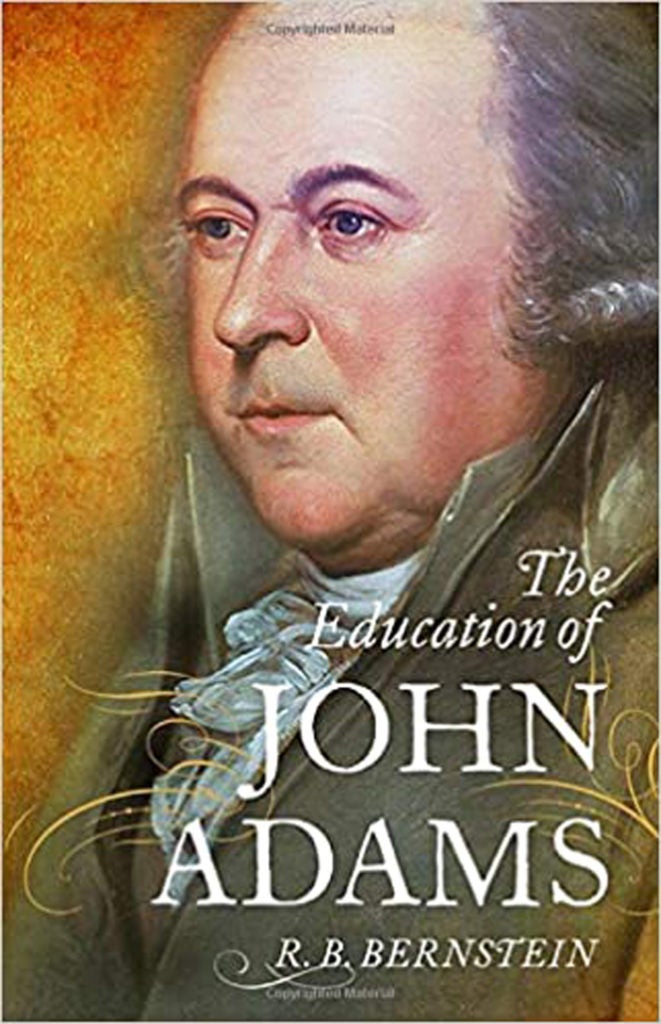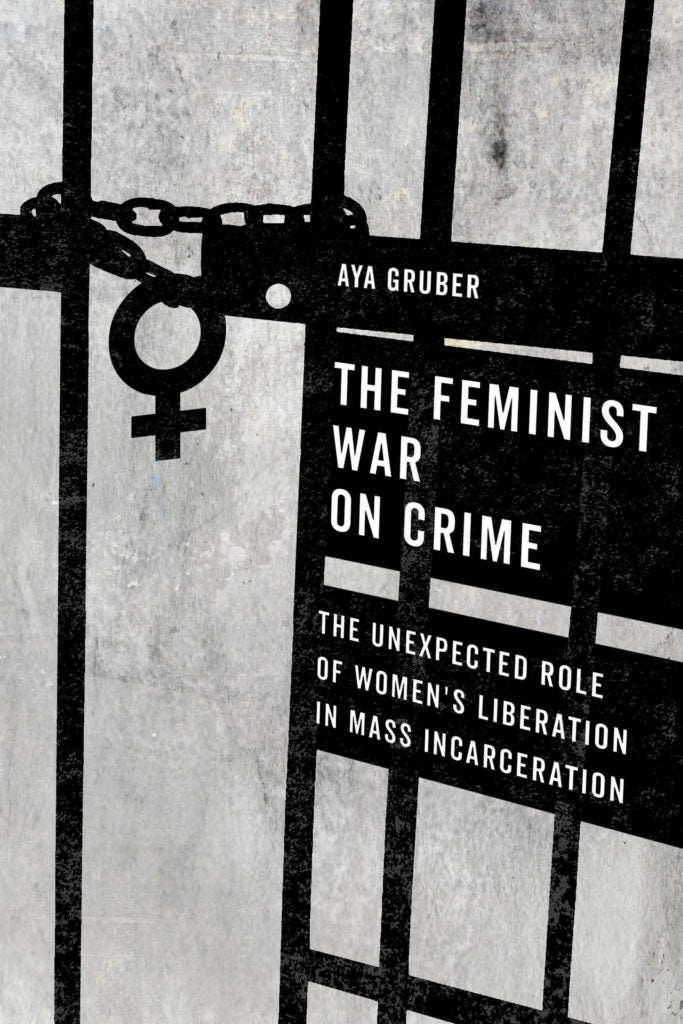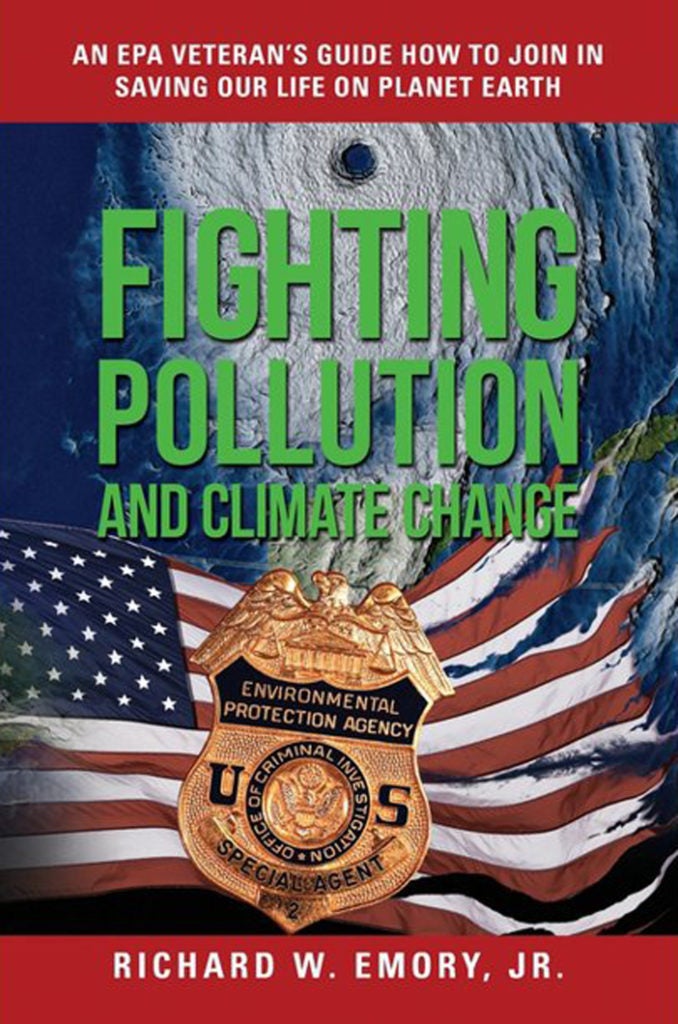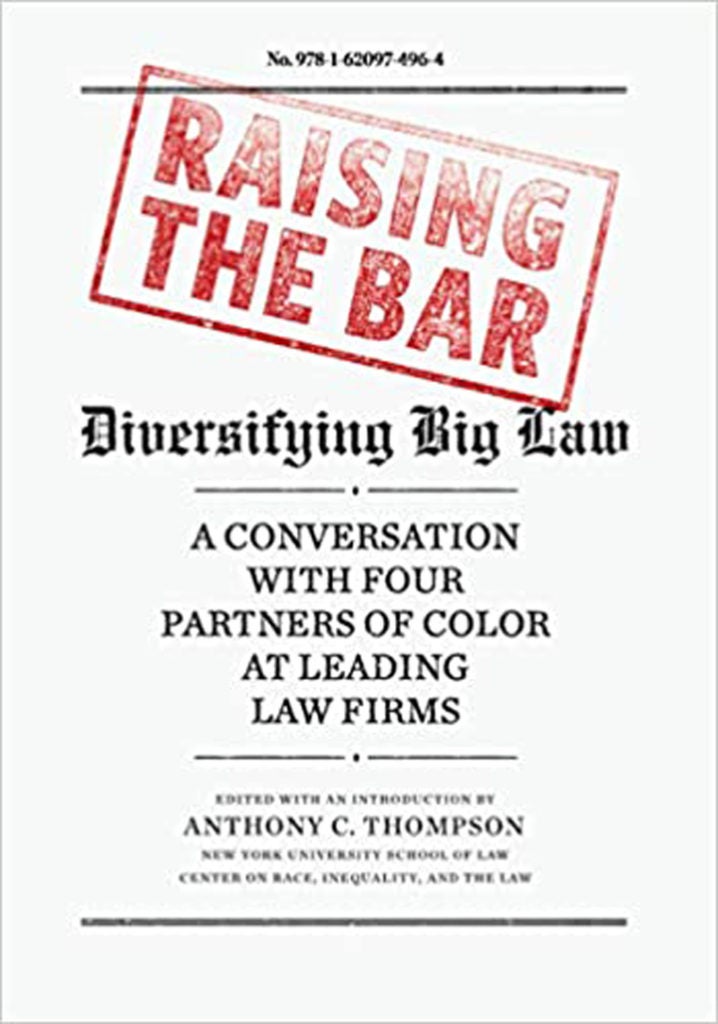“The Education of John Adams,” by R. B. Bernstein ’80 (Oxford University Press)

Dubbing John Adams a “thinking politician,” R.B. Bernstein delves into the personal and intellectual dimensions of the second U.S. president, including how his training as a lawyer shaped his life. The book covers Adams’ role as a revolutionary advocate and a Constitution drafter committed to separation of powers, and his discomfort with holding the offices of vice president and president in the shadow of George Washington. Throughout his life, he saw himself as a man of law, and he helped ensure that the Revolution was devoted to upholding and preserving law, the author contends. “As lawyer, politician, legislator, constitution-maker, diplomat, and executive,” writes Bernstein, “he mobilized legal and historical knowledge for the greater good.”
“The Feminist War on Crime: The Unexpected Role of Women’s Liberation in Mass Incarceration,” by Aya Gruber ’97 (University of California)

By advocating for harsh penalties for offenses commonly committed against women, the feminist movement has helped shape the modern criminal justice system, which is marred by mass incarceration, argues Aya Gruber, a professor at the University of Colorado Law School. She charts the history of feminist efforts to fight rape and domestic violence, including mandatory arrest policies for accused batterers. A feminist who believes the movement as a whole has been a force for good, she recommends what she calls a “neofeminist” approach to gender harm and violence that is conscious of the injuries caused by the criminal justice system and its racial and class disparities. Criminal law, she writes, should be used as a last, not first, resort.
“Fighting Pollution and Climate Change: An EPA Veteran’s Guide—How to Join in Saving Our Life on Planet Earth,” by Richard W. Emory Jr. ’67 (BookLocker)

According to Richard Emory, the Environmental Protection Agency has been depleted since 2017 and “must be revived and then greatly strengthened if humanity is to avoid climate chaos and mass extinction.” The former chief legal adviser for the agency’s law-enforcement agents details a host of existing problems to make his case, including wildlife endangerment because of human activities, dumping of hazardous chemicals, and contaminants in the food supply. To protect the climate, he recommends technologies such as advanced-design nuclear power and policies such as a tax on polluters for carbon emissions. He also weaves in stories from his more-than-30-year tenure at the EPA ending in 2011.
“Kamala and Maya’s Big Idea,” by Meena Harris ’12, illustrated by Ana Ramírez González (HarperCollins)

Meena Harris offers a lesson in perseverance and teamwork in a children’s book based on a true story about her mother, Maya Harris, a public interest lawyer, and her aunt, U.S. Sen. Kamala Harris, Democratic vice- presidential nominee. The book recounts how the sisters became young community organizers and advocates in seeking to build a playground in the barren courtyard of their apartment building. Despite the landlord’s initial refusal, the Harris sisters enlisted other kids and their parents to find supplies and raise funds to bring their big idea to fruition. The author writes in an afterword that she hopes the tale shows a new generation of activists “that they can be effective agents of change if they think creatively, engage their communities, and never, ever give up.”
“Raising the Bar: Diversifying Big Law,” edited by Anthony C. Thompson ’85 (New Press)

Law firms typically pledge their commitment to diversity and inclusion. Yet they often fail to execute that goal, according to Anthony Thompson, a professor at New York University School of Law and founding faculty director of its Center on Race, Inequality, and the Law. To address issues of race and inequality in the legal profession, he presents a conversation he had with law firm partners of color, including Paul Weiss partner Ted Wells ’76, who discuss their own challenges being among few partners of color, the importance of mentors, and how to recruit and facilitate the success of minority associates. The book also includes a conversation with law firm diversity professionals and a “playbook” to guide firms in developing more diverse offices.
Breaking Barriers and Building an Empire
New audio version of book tells the story of Reginald Lewis ’68, a leading African American businessperson

The memoir “‘Why Should White Guys Have All the Fun?’: How Reginald Lewis Created a Billion-Dollar Business Empire” (begun by Lewis and completed after his 1993 death by Blair S. Walker with assistance from Lewis’ wife, Loida Nicolas Lewis), is newly available in audiobook format via Audible.com. Narrated by J.D. Jackson, the book chronicles Lewis’ journey from childhood in segregated Baltimore to serving as chairman and CEO of TLC Beatrice International, the first Black-owned business to generate more than a billion dollars in sales.
The book details his hard work and his self-confidence, expressed in an early proclamation that he would become a millionaire. After first working at Paul Weiss and then helping to establish Wall Street’s first African American law firm, Lewis turned to deal-making, which the book covers extensively, culminating in the purchase of Beatrice Foods for $985 million in 1987.
The success he achieved did not insulate him from racism, as he wrote: “Here in this country, there is a certain conspiratorial desire—regardless of what you do, how much you earn, you’re still black. And that’s meant to demean.”
The book recounts his long and warm connection with Harvard Law School, where he graduated in 1968. Shortly before his death, he donated $3 million to the school, then the largest gift in its history, which led to the International Law Center’s being named after him and the creation of a fellowship program to increase the diversity of legal educators. In addition to his business acumen, Lewis’ great gifts were his abilities to love and inspire people and to enjoy life, according to his daughter Christina Lewis Halpern.
